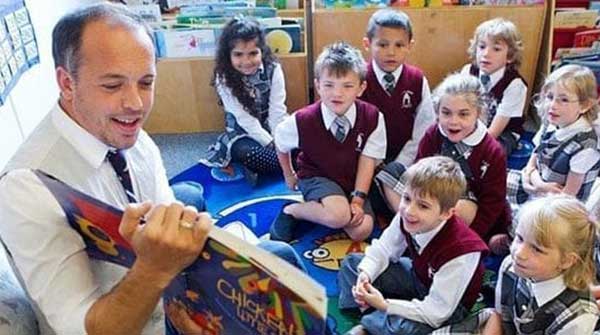 Canadian schools are among the best in the world, and B.C. schools are arguably the best in Canada.
Canadian schools are among the best in the world, and B.C. schools are arguably the best in Canada.
This is so much the case that the Organization for Economic Co-operation and Development (OECD) is studying our educational system to see how we’re achieving such exceptional results.
It’s no surprise then that Canadian teachers are among the best paid in the world. There simply is no such thing as a free lunch – you get what you pay for.
And that’s the problem. Governments, taxpayers and lobbyists are trying to get a free lunch.
The real wages of teachers have dropped significantly in British Columbia and elsewhere in the country. Our schools are doing well because the teachers who once received a fair wage are still in the system, and they care more about the well-being of their students than the amount of money in their bank accounts.
I know this because I see it every day. The professional collaboration that takes place among teachers who want to see their students achieve their greatest potential is nothing short of exceptional.
Teaching continues to become more complex as our world changes. There’s a lot more going on in schools today than in the past.
Teachers want to deal compassionately with increasing anxiety, stress and other mental health concerns within the student population.
There are constant demands for schools to do more with fewer resources.
Yet teachers somehow find a way to make it work, often at their own expense.
We also need to look at wages in relation to the cost of living in British Columbia, for example. Housing prices have risen significantly across the province, especially in the Lower Mainland. Is it realistic to expect a person with two university degrees and student loans to accept a teaching position in Vancouver, where a condominium costs over $600,000, and earn a gross income of just $50,000 a year?
The bottom line is that teacher wages and working conditions in British Columbia and elsewhere are unsustainable. We can expect to see a significant drop in student performance if the situation doesn’t improve soon.
This will translate into a decrease in the quality of our workforce and a weakening of our economy.
If we value the quality of life in Canada, we have to invest in education. If we continue to tighten educational budgets in real dollars, we will eventually get what we pay for.
There’s another issue at play with regard to teacher salaries, however. The majority of teachers in B.C., for example, are women, and women in Canada are paid 75 cents for every $1 men earn.
It’s very interesting to note that high school teachers tend to be male and their wages in most countries are higher than those of elementary school teachers. Would it be fair to speculate that this is a symptom of gender inequality?
In B.C., all public school teachers are paid based only on their training and years of experience, regardless of what grade they teach. This is as it should be. I’ve taught both elementary school and high school, and the workload and the level of expertise needed are the same.
Many seem to think, however, that because the majority of B.C. Teachers’ Federation members are women, they deserve to be paid less. This is simply unacceptable.
Despite the challenges it has faced in recent years, the federation has done what a union is supposed to do: it has made life better for everyone. It has lobbied for better learning conditions and has played a very large role in the fact that B.C. students and teachers are among the best in the world.
It’s finally time to give teachers the respect and wages that they deserve.
Gerry Chidiac is an award-winning high school teacher specializing in languages, genocide studies and work with at-risk students.
The views, opinions and positions expressed by columnists and contributors are the author’s alone. They do not inherently or expressly reflect the views, opinions and/or positions of our publication.


